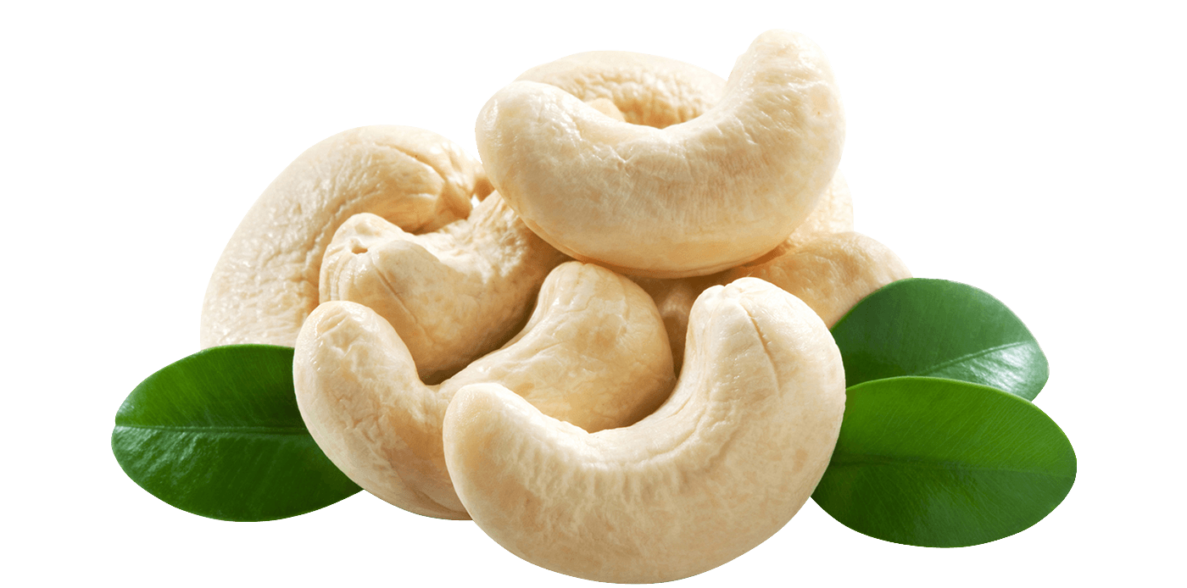
Health Benefits Of Cashew Nuts
Cashew or Kaju is a prominent component in many Indian recipes, especially as a basis. It used to manufacture cashew milk and cream.
Cashews are a kidney-shaped seed from the Anacardium occidentale tree. This evergreen tree has an apple-like fruit and a nut that hangs below it. Brazilian cashews were colonized by African and Indian nuts. It is available all year and has a long shelf life if stored correctly.
Cashews are seeds, not nuts. Cashews taste nutty, like almonds or peanuts. When pureed, cashew butter can resemble other nut butters, such as peanut butter. Raw, roasted, or salted cashew nuts
Cashew Nut Nutritional Profile
The cashew nut is one of the healthiest nuts. However, due to its high calorie content, it cannot be consumed regularly. That is why diet-conscious people avoid cashew nuts. Cashews are high in –
EFAs
Vitamin E, K, and K
Calcium, copper, magnesium, zinc, and folate
Antioxidants
Fibres
Proteo-carbo
Cashew nut benefits
Cashews are high in protein, healthy fats, vitamins, and minerals. In moderation, it may be a nutritious supplement to your diet.
1: Prevents heart disease
Contrary to popular belief, cashews are good for our hearts. Cashews are high in heart-healthy essential fatty acids, potassium, and antioxidants. For heart health, it includes phytosterols, phenolic compounds, and oleic acid.
Cashew nuts help lower LDL and raise HDL levels in the body. It also contains anti-inflammatory qualities, lowering the risk of heart disease.
2: Reduce blood pressure
Cashews are high in unsaturated lipids, magnesium, potassium, and L-arginine. It dilates blood arteries, lowering blood pressure.
3: Can help manage diabetes
Cashews can help persons with type 2 diabetes regulate their blood sugar levels. It’s high in fibre, which helps avoid blood sugar rises. Due to its high calorie content, 3-4 cashews per day is suggested.
4: Booster
Cashews are high in zinc and vitamins. Zinc is an immune-boosting mineral required for cell function. Regular zinc consumption may help you get the zinc and vitamins you need to boost your immunity.
5: It may help build bones
Cashew nuts offer all the nutrients we need for strong bones. Cashews are high in copper and calcium, which strengthens our bones. Copper aids with joint flexibility by generating collagen.
6: Boost mental health
The brain is the body’s most active organ, and it requires a continual supply of fatty acids to function. Cashews offer brain-boosting ingredients that may help keep your memory fresh. Eat soaked cashews to increase brain function.
7: Manage weight
Cashews are eaten as a snack or in nut mixtures. Cashews are abundant in calories, protein, and fiber, which keeps you filled longer and curbs cravings. Nuts are heavy in calories, thus they should be eaten in moderation.
8: Healthful
Cashews have a naturally high selenium, zinc, iron, and antioxidant oil. It maintains the skin youthful. Copper boosts elastin and collagen production. Collagen is a structural protein that gives your skin flexibility.
9: Good for hair
Copper in cashew helps make hair pigment-melanin, which gives hair color. The EFAs maintain your hair bright and healthy.
10: Good for the eyes
Cashews include antioxidants zeaxanthin and lutein that protect against UV radiation. Antioxidant pigments in the eyes protect against harmful light and may lessen the incidence of AMD and cataracts.
11: Boosts male fertility
Cashews are high in zinc, which helps male sperm count and fertility. Regular cashew consumption may also help regulate weight and diabetes, boosting male fertility.
Disclaimer: The material on this site is for educational purposes only and is not intended to replace professional medical treatment. Due to specific needs, the reader should visit their physician to ensure the material is appropriate for their circumstance.